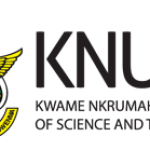Research methods play a vital role in academic studies, enabling students to acquire essential skills…
Mastering University Exams: 10 Sample Past Questions for 10 Different Courses at KNUST
Preparing for university exams is a crucial part of academic success, requiring students to understand course material thoroughly and practice with past questions. For students currently enrolled in various undergraduate programs at Kwame Nkrumah University of Science and Technology (KNUST), familiarizing themselves with past exam questions can greatly enhance their preparation. In this blog post, we present past questions for 10 different courses offered at the undergraduate level at KNUST. Let’s explore these examples and delve into effective guidelines for exam success.
1. Course: Mathematics
a) Solve the equation: 3x + 2 = 7x – 4.
b) Differentiate the function f(x) = 4x^3 + 2x^2 – 6x + 1.
c) Find the value of Σ(3n + 1) for n = 1 to 5.
d) Solve the inequality: 2x + 5 > 3x – 2.
e) Find the derivative of the function f(x) = sin(x) + cos(x).
2. Course: Physics
a) Calculate the force required to accelerate a 500 kg car at 4 m/s^2.
b) Explain the concept of electromagnetic induction.
c) Derive the equation for the time period of a simple pendulum.
d) Calculate the electric field intensity between two parallel plates with a potential difference of 100 V and a distance of 0.2 m between them.
e) Explain the concept of wave-particle duality in quantum mechanics.
3. Course: Economics
a) Define inflation and explain its causes.
b) Discuss the concept of elasticity of demand and provide examples.
c) Analyze the impact of government taxation on consumer behavior.
d) Discuss the impact of international trade on economic growth.
e) Analyze the concept of market equilibrium and its determination.
4. Course: Computer Science
a) Write a Java program to swap two numbers using a temporary variable.
b) Explain the concept of object-oriented programming and its benefits.
c) Discuss the difference between a stack and a queue data structure.
d) Write a Python program to check if a given string is a palindrome.
e) Explain the concept of recursion and provide an example.
5. Course: Chemistry
a) Balance the chemical equation: C4H10 + O2 → CO2 + H2O.
b) Define the terms oxidation and reduction in chemical reactions.
c) Calculate the molar mass of H2SO4.
d) Calculate the pH of a solution with a hydrogen ion concentration of 1 x 10^-5 M.
e) Discuss the different types of chemical reactions, giving examples for each.
6. Course: Biology
a) Explain the process of photosynthesis in plants.
b) Define mitosis and describe its stages.
c) Discuss the functions of the different types of blood cells.
d) Explain the process of DNA replication.
e) Discuss the importance of biodiversity and its conservation
7. Course: History
a) Analyze the causes and consequences of World War II.
b) Discuss the impact of colonialism on African societies.
c) Describe the major events and leaders of the Ghanaian independence movement.
d) Analyze the impact of the Cold War on global politics.
e) Discuss the causes and consequences of the French Revolution.
8. Course: Civil Engineering
a) Calculate the maximum bending moment in a simply supported beam.
b) Explain the concept of reinforced concrete and its applications.
c) Discuss the factors influencing the design of a highway pavement.
d) Calculate the maximum shear stress in a rectangular cross-section beam.
e) Explain the concept of soil compaction and its significance in construction.
9. Course: Psychology
a) Define classical conditioning and provide an example.
b) Discuss the different approaches to psychology and their key principles.
c) Explain the process of memory encoding and retrieval.
d) Discuss the theories of personality development.
e) Explain the concept of operant conditioning and provide an example.
10. Course: English Literature
a) Analyze the themes and symbolism in William Shakespeare’s “Macbeth.”
b) Discuss the characteristics of Romantic poetry.
c) Interpret the meaning of the poem “The Road Not Taken” by Robert Frost.
d) Analyze the theme of love in Jane Austen’s “Pride and Prejudice.”
e) Discuss the characteristics of modernist literature.
Guidelines for Effective Exam Preparation:
1. Start early and create a study schedule, allocating sufficient time for each course.
2. Review lecture notes, textbooks, and relevant study materials for each subject.
3. Practice solving past questions regularly to familiarize yourself with the exam format and identify areas of improvement.
4. Seek clarification from professors or teaching assistants for any challenging topics.
5. Form study groups with classmates to engage in discussions and share knowledge.
6. Use mnemonic devices, flashcards, and visual aids to reinforce key concepts and information.
7. Practice time management during exams by setting time limits for each question and avoiding spending too much time on difficult questions.
8. Stay organized by maintaining a neat and structured revision notes.
9. Adopt effective study techniques such as summarizing, mind mapping, and self-testing.
10. Take care of your physical and mental well-being by getting enough sleep, eating nutritious meals, and practicing relaxation techniques.
Conclusion:
Preparing for university exams is a rigorous process that requires dedication, thorough understanding of course material, and regular practice with past questions. By utilizing the sample questions provided and following the guidelines for effective preparation, Ghanaian students at KNUST can optimize their exam performance and achieve academic success. Remember, consistent effort and a well-rounded approach to studying are key to conquering your exams and excelling in your chosen field of study.







